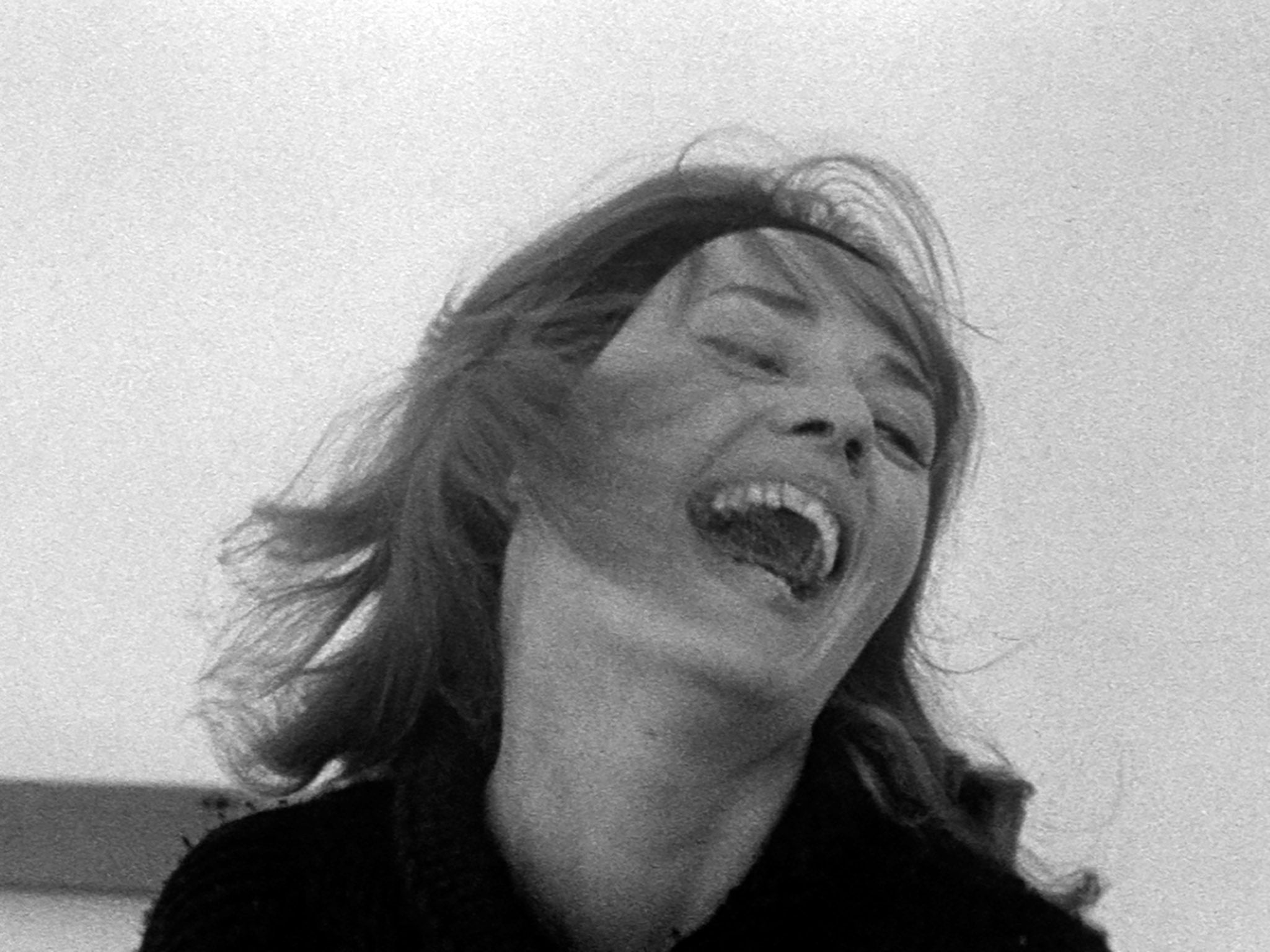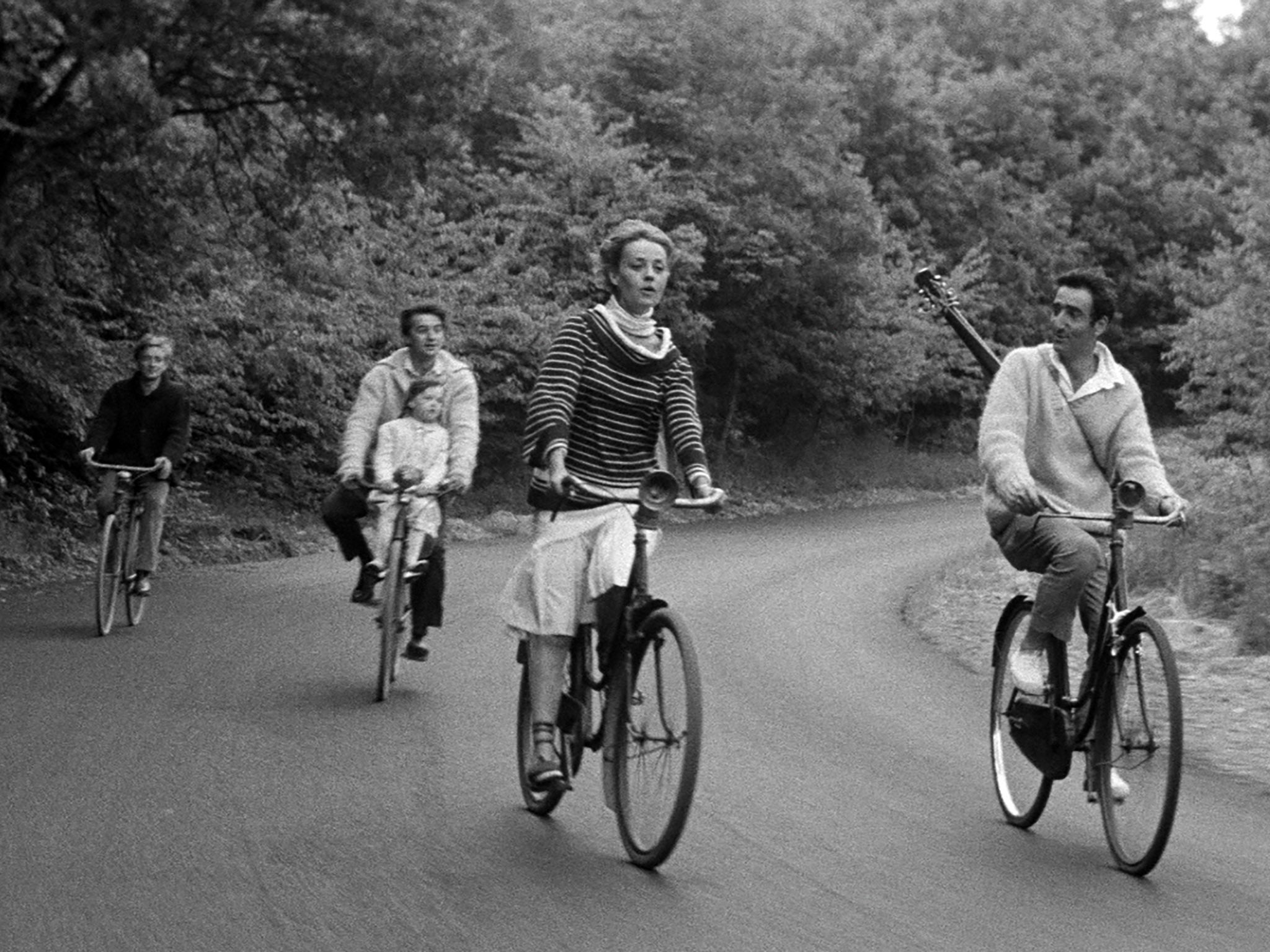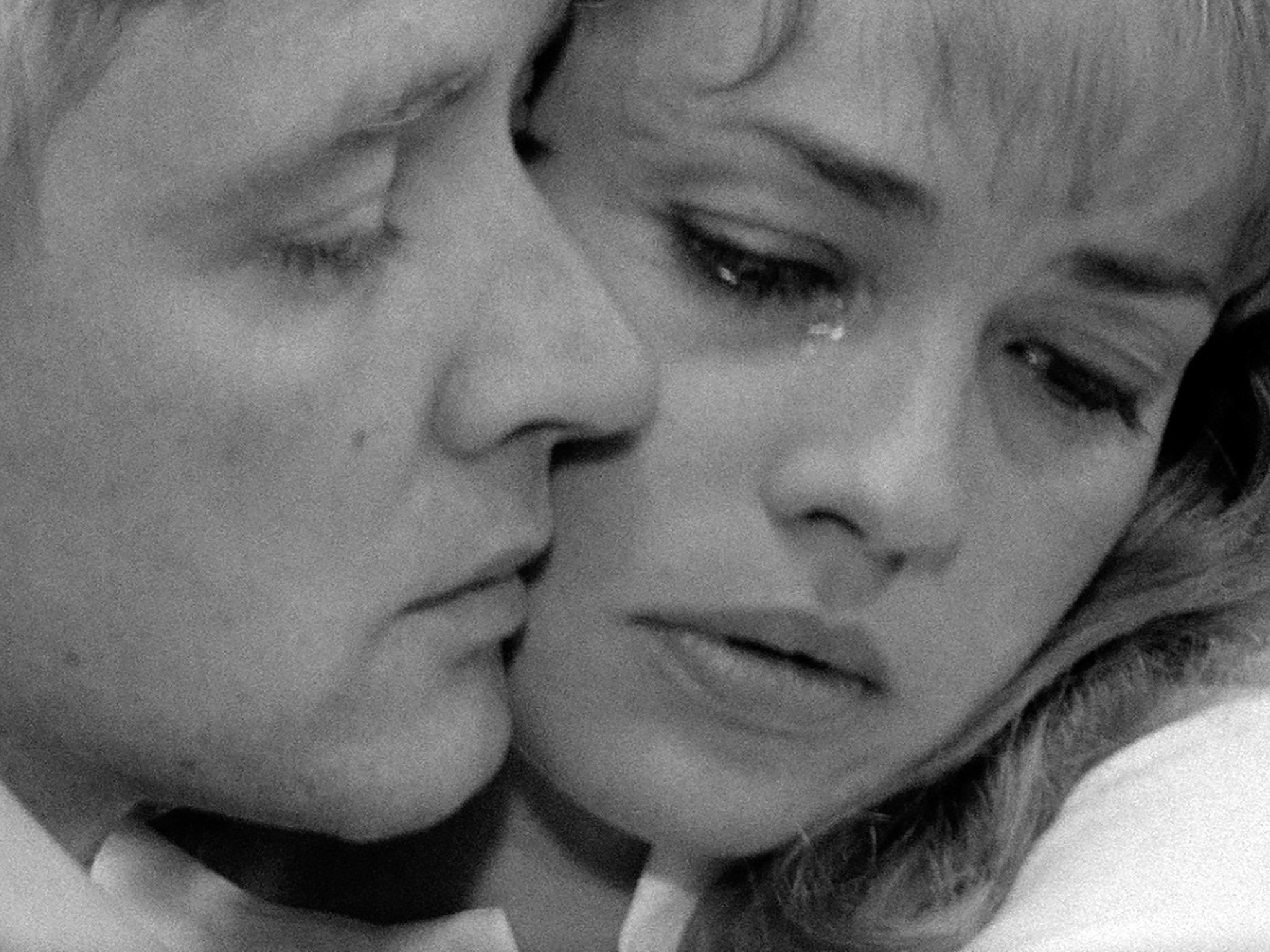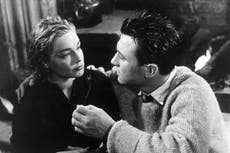Emily in Paris is right – Jules et Jim is chic and glamorous but a tragedy in disguise
Ahead of its cinematic re-release and a Francois Truffaut season at the BFI, ‘Jules et Jim’ is coincidentally being probed for meaning by the star of Netflix’s most polarising hit. But while Lily Collins’s plucky fashionista isn’t France’s sharpest movie critic, she does have a point, writes Geoffrey Macnab

If you’re a fashion-conscious young American woman in Paris with a complicated love life and a desire to improve your French, the best movie to watch is definitely Francois Truffaut’s Jules et Jim (1962). This is what Emily Cooper (Lily Collins) discovers in a recent episode of the Netflix series Emily in Paris. She watches the film shortly after sleeping with the improbably handsome chef Gabriel (Lucas Bravo), and the boyfriend of her best friend Camille (Camille Razat). It’s then no surprise that Truffaut’s dissection of an amour a trois – which she sees at the filmmaker’s favourite Paris cinema, Le Champo – has an added resonance for her. Not that Emily is entirely won over. She likes the film but is frustrated by some of its plot twists, and can’t understand why it has to end on such a downbeat and morbid note.
Emily is entranced by the performance of Jeanne Moreau as Catherine, the woman adored by both Jules (Oskar Werner) and Jim (Henri Serre). She is startled by the daring of a film in which everyone seems so untouched by jealousy that Jim can sit reading while, a couple of floors above him, the woman he loves is in bed with his best friend.
In tandem with its 60th anniversary, Jules et Jim will be re-released in UK cinemas this February as one of the centrepieces of the British Film Institute’s two-month Truffaut season. It’s a measure of the film’s enduring appeal that it features so prominently in a show like Emily in Paris, which has divided critics and is loved and loathed in equal measure for its depiction of modern-day Gallic life.
Jules et Jim is now regarded as the acme of cinematic French chic, the kind of movie which Emily can look to for hints on how to dress and behave as stylishly as the natives. However, prior to the film’s release, Truffaut had been going through a rough patch. His previous movie, Shoot the Pianist (1960), flopped at the box office. Restless critics and audiences had been growing exasperated with the work of the young and brash New Wave filmmakers led by him and Jean-Luc Godard. They had initially applauded The 400 Blows (1959) – Truffaut’s searing autobiographical account of his troubled childhood – and been startled by Godard’s Breathless (1960), with its jump cuts and charismatic but seedy, small-time gangster hero played by Jean-Paul Belmondo. Then, though, the backlash started. New Wave films were blamed for the poor ticket sales in French cinemas in the early 1960s.
“The movement became a scapegoat, its pictures considered too intellectual or boring, and so keeping the crowds away,” Antoine de Baecque and Serge Toubiana write in their biography of Truffaut. “We now know the young directors have virtually nothing to say,” influential journalist Jean Cau had also declared.
Truffaut acknowledged that the New Wave had lost its way. Directors, he suggested, had been so busy rejecting the heavy-handed indulgences of the previous generation that they had sometimes stripped their own films of meaning. Their “lightness” was coming close to “frivolity”.
Not that Jules et Jim was solemn or heavy-handed. Driven along by Georges Delerue’s score, this was a jaunty and seemingly light-hearted affair. Its early scenes of Catherine dressing up in Charlie Chaplin-like drag, or running amok with her two new male friends, were full of charm, humour and tenderness.
This was Truffaut’s third feature. His reputation was on the line, and so was that of the new generation of filmmakers with which he was so closely associated. The ultimate success of Jules et Jim, in spite of its problems with the censors – who wouldn’t let audiences under 18 see it – gave him an artistic credibility he would never lose.

The director had discovered Henri-Pierre Roche’s 1953 novel, from which he adapted the film, in a second-hand bookshop in the mid-1950s, before his directorial career had begun. He was instantly smitten by what he called “one of the most beautiful modern novels” he had ever read. What appealed to him most was the idea that both the two male friends could be in love with the same woman “with hardly any conflict thanks to a new aesthetic code which is constantly reassessed”.
The new film was in a different register to most of the other New Wave pictures that preceded it. This was a period movie, beginning just before the cataclysm of the First World War. Both men head off to the front on separate sides, the Austrian-born Jules with the German army and Jim with the French. In archive footage, we see glimpses of trench warfare: bombs, bayonets, barbed wire, corpses. From the front, Jules still writes Catherine poetic letters. There may be death all around him but he continues to think of her “body, thighs and hips”.
As in Jean Renoir’s classic, La Grande Illusion (1937), officers and gentlemen don’t let a little thing like war get in the way of friendship and good behaviour. Jules and Jim are terrified of killing one another but try to resume their old way of life as soon as the conflict is over. The fates, though, are against them. In the first part of the film, when Catherine impulsively dives into water, her lovers regard it as just another of her mischievous pranks. Later on, when she does the same thing, it has a very different connotation.

As played by Moreau, Catherine is by far the most formidable figure in the film. Truffaut’s biographers de Baecque and Toubiana have a revealing story about Liliane David, Truffaut’s girlfriend, stopping by the set and discovering that everyone there was in love with Moreau, from the producer to the actors and Truffaut himself. They all regarded her with the same awe and slavish devotion that Jules and Jim showed to Catherine. “Her qualities as an actress and as a woman made Catherine real before our eyes, made her plausible, crazy, possessive, passionate, but above all adorable,” Truffaut later wrote of his star. He also described her quicksilver performance as a “slalom to avoid the cliches”.
Catherine, though, isn’t good for Jules or Jim, ultimately having a destructive effect on her two hapless lovers. Neither can keep her for long. Jules is an entomologist who sits at home, studying insects and writing a book about dragonflies. He is a kindly, patient but a strangely passive and weak-willed figure. Jim is an author and journalist writing articles about post-war Germany. Jules marries Catherine. They have a daughter together and seem to live in perfect domestic harmony. “But when all goes too well, she becomes discontented,” a terrified Jules confides in his best friend, so convinced his new bride will leave him. He is right to be worried. She “leapt into men as she leaped into the Seine,” it is said of Catherine. Her mercurial behaviour will soon cause chaos in all their lives.

In Emily in Paris, Emily is quick to spot the tensions in the movie. Jules and Jim’s high-minded ideas about friendship and love are actually a template for disaster. Although the men can delude themselves into thinking everything will turn out well, the sombre voice-over which runs throughout the movie contradicts their optimism.
“Did we have to see them cremated and their bones crushed to dust?” Emily complains when she comes out of the cinema. She isn’t the sharpest movie critic (at one stage she mistakenly decides that Catherine has turned into a ghost) but she makes a very perceptive point. Truffaut’s account of a polyamorous relationship is actually a tragedy in disguise. It ends in disappointment, betrayal, madness and death. That, though, isn’t what anyone wants to remember. The film is so enchanting on the surface that generations of cinema goers have managed to disregard the darkness at its core. Netflix’s Emily in Paris is the latest in a long line of films, TV dramas and books to pay tribute to one of the all-time classics of French cinema. While her show’s tone may be firmly tongue in cheek, Emily herself spots a side of the movie that many other reviewers have chosen to ignore.
‘Emily in Paris’ season two is available on Netflix now. The BFI’s Francois Truffaut: For the Love of Films runs across the UK from January to February, while ‘Jules et Jim’ is re-released on 4 February.
Join our commenting forum
Join thought-provoking conversations, follow other Independent readers and see their replies
Comments


Bookmark popover
Removed from bookmarks